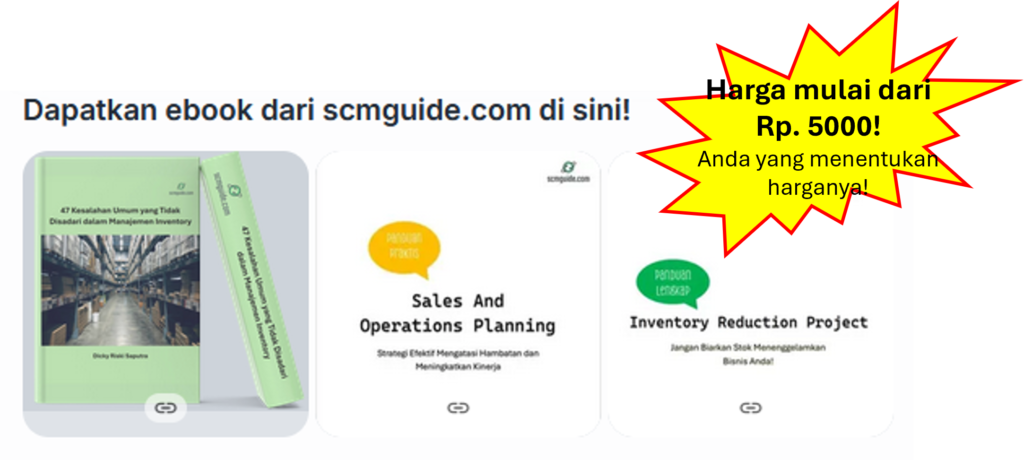The workforce is always evolving, shaped by the characteristics and priorities of the generations that comprise it. Among the most recent entrants into the professional world is Generation Z, or Gen Z, born between the mid-1990s and early 2010s.
This dynamic generation brings a fresh and exciting perspective to industries across the board. One sector particularly poised for transformation due to Gen Z’s influence is supply chain management.
The supply chain industry is at the heart of global commerce, responsible for ensuring that goods move seamlessly from production to consumers. Yet, as the world becomes increasingly digital and consumer expectations evolve, traditional methods are proving insufficient.
Gen Z, with its innate technological fluency, collaborative mindset, and commitment to social responsibility, is uniquely equipped to revolutionize how supply chains operate.
This article delves into the qualities that make Gen Z ideal for shaping the future of supply chain management, the challenges they face, and the opportunities they present for innovation and sustainability.
Before we go further into this topic, don’t forget to follow my LinkedIn account. You’ll get more helpful insights on supply chain management there.
Table of Contents
The Unique Qualities of Gen Z
Gen Z has often been misunderstood, with stereotypes painting them as entitled or overly dependent on technology.
In reality, this generation possesses a combination of qualities that make them well-suited to tackle the complexities of modern supply chain management. Raised during a time of rapid technological change and increasing social awareness, they bring a distinct set of skills and values to the table.
One of Gen Z’s defining traits is their technological expertise. Unlike previous generations that had to learn to adapt to new technologies later in life, Gen Z grew up immersed in the digital world. This exposure has made them highly proficient in using and understanding technology.

From artificial intelligence to machine learning, from blockchain to the Internet of Things (IoT), Gen Z is comfortable navigating cutting-edge tools that are transforming supply chain operations. They understand how to leverage these technologies to streamline processes, enhance efficiency, and solve problems in innovative ways.
Another hallmark of Gen Z is their collaborative nature. This generation thrives in environments that value teamwork and collective achievement. Gen Z is particularly adept at working in diverse teams, which is critical in the globalized and multicultural nature of supply chains today. They approach problems with openness, welcoming ideas from a variety of perspectives and fostering a culture of inclusion. This collaborative mindset makes them ideal for addressing the interconnected challenges that arise in supply chain management.
Gen Z’s emphasis on work-life balance is another significant quality. They prioritize flexibility and personal well-being alongside professional success. While this might initially appear as a challenge to traditional work structures, it can lead to healthier, more productive teams. By seeking out employers who value mental health and offer hybrid work arrangements, Gen Z is pushing the industry to adopt more modern and employee-centric practices.
Lastly, Gen Z is deeply socially conscious. They care about environmental sustainability and ethical practices, and they expect the companies they work for to align with these values. This generation wants to be part of organizations that are committed to reducing their carbon footprint, sourcing materials ethically, and ensuring fair labor practices across the supply chain. Their drive for social and environmental responsibility positions them as advocates for sustainable change in an industry under growing scrutiny for its impact on the planet.
You might also like:
- The Great Debate: To Stay or to Go? A Supply Chain Professional’s Dilemma
- Upgrading Your Supply Chain: A Comprehensive Guide
The Role of Gen Z in the Supply Chain Industry
As Gen Z professionals enter the supply chain industry, their impact is already becoming evident. Their unique combination of tech-savviness, collaboration, and social consciousness is aligning seamlessly with the industry’s need for innovation and adaptability.
One area where Gen Z is making a difference is in improving efficiency. Supply chains are incredibly complex systems that require precision and coordination at every step. Gen Z’s fluency with technology enables them to adopt advanced tools and software that automate repetitive tasks, analyze data in real-time, and optimize logistics. This results in faster, more accurate decision-making and significant cost savings.
For example, Gen Z professionals can use AI algorithms to predict consumer demand more accurately, reducing instances of overstocking or understocking.
Innovation is another space where Gen Z excels. Their openness to experimentation and new ideas fosters creativity, which is essential for problem-solving in supply chain management.
Whether it’s implementing blockchain technology for greater transparency or exploring the use of drones for last-mile delivery, Gen Z is unafraid to push boundaries. They bring a startup mentality to established organizations, encouraging them to think differently and adapt to changing market conditions.
Gen Z is also driving sustainability in supply chains. With climate change and environmental degradation becoming pressing global concerns, this generation is uniquely positioned to lead the charge toward greener practices. They advocate for reducing waste, using renewable energy, and designing supply chains that are both efficient and environmentally friendly.
By championing these initiatives, they not only align with consumer expectations but also help companies future-proof their operations against regulatory and reputational risks.
Moreover, Gen Z’s deep understanding of their own generation’s consumer behavior allows them to enhance the customer experience. They recognize the importance of personalization, speed, and convenience in today’s market.
By leveraging insights from big data and advanced analytics, they can design supply chain strategies that meet the evolving demands of their peers. Whether it’s ensuring same-day delivery options or supporting brands that prioritize ethical sourcing, Gen Z professionals bring a unique perspective to creating value for customers.
Overcoming Challenges
Despite their many strengths, Gen Z faces certain challenges as they navigate the complexities of the supply chain industry. Their relative lack of experience compared to older generations is one such obstacle. Supply chain management is a field that often requires a deep understanding of processes, regulations, and global dynamics, which can take years to develop.
However, this challenge also presents an opportunity for organizations to invest in mentorship and training programs. By pairing Gen Z employees with experienced professionals, companies can create a knowledge-sharing environment that benefits everyone.

Another challenge is the rapid pace of technological advancement. While Gen Z is adept at using technology, staying ahead of the curve requires constant learning and adaptation.
Supply chain professionals must keep up with emerging tools and platforms, which can be overwhelming without adequate support. Companies that prioritize continuous education, provide access to certifications, and encourage experimentation will find that Gen Z thrives in such environments.
Economic uncertainty is yet another hurdle. Supply chains are highly sensitive to global events, including geopolitical tensions, natural disasters, and economic downturns. These factors can disrupt operations and create instability.
However, Gen Z’s resilience and adaptability are assets in navigating these challenges. Their innovative thinking and willingness to embrace change make them capable of finding solutions even in the face of adversity.
You might also like:
- FOMO Is Costing You: The Right Way to Embrace Supply Chain Technology
- Finding the Balance: Optimizing Headcount in Supply Chain Operations
Preparing for the Future
To fully harness the potential of Gen Z in supply chain management, companies must adapt their strategies to meet the expectations and strengths of this generation.
One essential step is investing in technology. Gen Z thrives in environments where they have access to modern tools and platforms.
Companies should prioritize the adoption of technologies like cloud-based supply chain management systems, AI-driven analytics, and IoT devices. Providing employees with cutting-edge resources not only enhances productivity but also keeps them engaged and motivated.
Creating a collaborative and inclusive workplace culture is equally important. Gen Z values meaningful connections and a sense of belonging.
By encouraging cross-departmental collaboration and promoting diversity, organizations can foster an environment where Gen Z employees feel valued and empowered. This, in turn, drives innovation and improves team performance.
Sustainability should also be a top priority for organizations looking to attract Gen Z talent. Companies that demonstrate a commitment to environmental and social responsibility are more likely to resonate with this generation.
Initiatives such as reducing waste, transitioning to renewable energy, and ensuring ethical sourcing are not just good for the planet—they also align with the values of Gen Z employees and consumers.
Lastly, flexibility is key. Gen Z expects workplaces to offer hybrid work arrangements, flexible schedules, and wellness programs.
By embracing these practices, companies can create a supportive environment that promotes both personal and professional growth.
Conclusion
Gen Z is ushering in a new era for supply chain management. Their technological expertise, collaborative spirit, and passion for sustainability make them invaluable contributors to an industry undergoing rapid transformation.
While challenges like a lack of experience and economic uncertainty exist, these hurdles are far outweighed by the opportunities they present.
As companies adapt to the needs and strengths of Gen Z, they will find themselves better equipped to navigate the complexities of modern supply chains.
By investing in this generation, organizations can drive innovation, enhance efficiency, and promote sustainability, ensuring their relevance and success in an ever-changing global landscape.
The future of supply chain management is here, and it is being shaped by Gen Z.
I hope you find it helpful!
Please share this article with your colleagues so they can also benefit. For more insights on supply chain management, follow my LinkedIn account. You’re free to use all articles on this blog for any purpose, even for commercial use, without needing to give credit.

 by
by 


